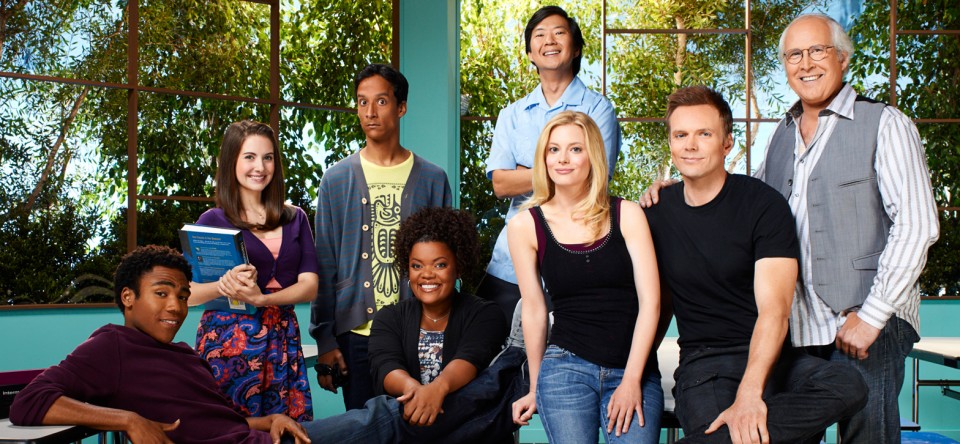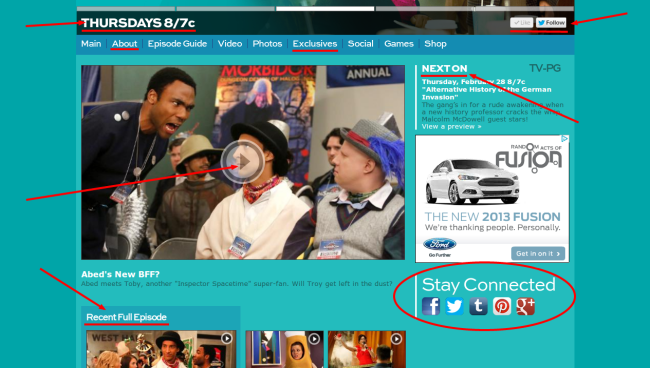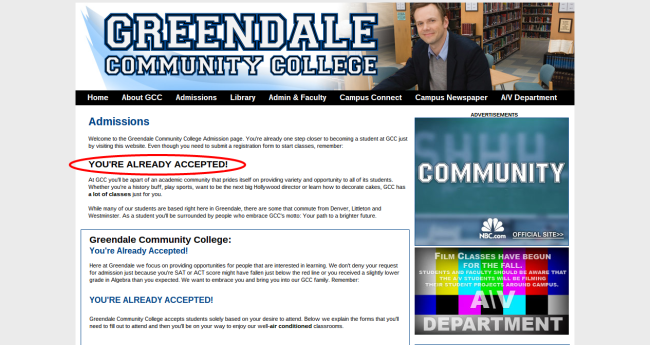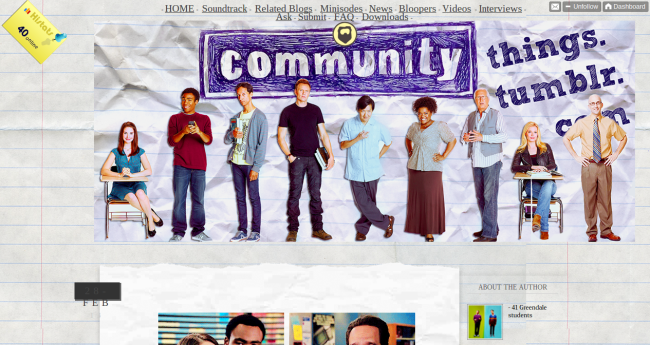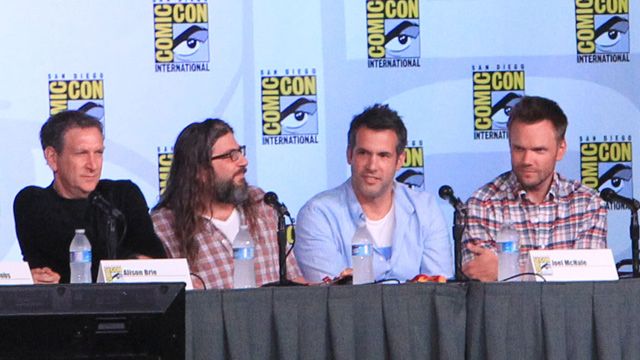Since I’m a college student, I do that thing where I take college classes and write college papers – and occasionally, write college blogs – and it was about a year and a half ago that I was zoned into a world of Sociology, thunderously typing out a paper, when my friend who had first introduced me to Community yanked me out with world-rattling news: Community was being suspended, in the middle of its third season.

all hail the internet
Now, I am a fan of the internet, and the wide variety that the internet offers is probably how I can get up in the morning and why I can’t fall asleep at night. Sooo, naturally, as soon as my friend told me about the hiatus, I went searching, found a couple news article, and the Save Community petition, which I signed like a dutiful and devoted fan – oh, and of course, shared on Facebook, because yay social media!
It was like Easter, my birthday, and Christmas all at once when I found out Community was renewed for a fourth season, and I knew that its fanbase and devoted interneters (I was so proud to call myself one!) were responsible for keeping Community around. No one, not even NBC nor Sony, can deny this, and so the show and its cult-following lives on.
But war wasn’t over. Community’s creator Dan Harmon wasn’t coming back to the show, and whoop! There went everything into a tizzy again.
Being a Community fan isn’t just shipping characters, cosplaying, following twitters or tumblrs, or having marathons and themed parties. It’s not just about being enamored with the show’s brilliance, assholery, and oddly deep comedy, characteristics rooted in Harmon as well – no, being a Community fan means you strive toward a larger goal: you fight alongside Troy and Abed in their battle of blanket forts and pillow towns AND alongside (and sometimes with) other fans AND against the Big Guys, aka NBC and Sony. Not every show is meant for everyone to watch, and not every show should be loved by all. I mean, I know we’re in the age of equality, but geez…not every show is created equally.
So, yeah, Dan Harmon is off the show, and he owns up to the fact that it’s because he’s an asshole. So between Harmon and NBC/Sony both refusing to budge about their ideas, naturally, they brought in new writers: Moses Port and David Guarascio.

Dashing New Writers: Guarascio and Port (on set!)
Again, being the internet addict that I am, I did some poking around. Both writers have been showrunners before, so they aren’t new to the job, which is some sort of comforting. Also, they aren’t trying to pick a side and be Harmon-esque or NBC/Sony drones, which is even more comforting.
>>Ridiculously extensive interview that was actually really insightful and placating<<
However! Neither of these guys has had shows as successful as Community, and basically all the other writers have dipped out…Port and Guarascio, as enthusiastic and open-minded as they are, just won’t make the fourth season of Community what it probably deserves to be. Granted, they have a lot of things working against them, and while they report working closely with the cast and consulting with other writers to ensure that characters more or less stay the same, it’s just impossible.
Which is why when I read that they basically structured this season to be the last (which I mean, come on, time-wise, makes perfect sense because they’re in college…and the whole six seasons and a movie idea has always been really lame to me anyway, *end rant*) I was still upset. Who were they to decide the end of this show? We just got it back on air!
Regardless of Community’s possible end, I kinda have this theory about TV shows:
First season, usually pretty good because it’s the intro. Everybody’s really drawn in, and the writers are at the top of their game because they’re enthusiastic and it’s a brand new show, so look at all the possibilities! Then, season two sinks in, and it’s the sophomore album, the butt of the career. Things are meh. Sure, there are changes. (For the record, Guarascio and Port talk a lot about change in interviews – how it’s really the only way to cope and it’s natural.) Change is inevitable, but season two is usually on the Really? This is the best you’ve got? spectrum. The writers dick around a bit, and then, wham! Season three. Now, season threes are usually outstanding. Look at House, look at X Files, look at Danny Phantom, even Mad Men – you now know what I like to watch, also. The third seasons of each of these are like, whoa! Where’d all this come from? It’s awesome!
And then. Season four. If a show makes it that far, season fours are usually back down. Still better than season two because the writers know themselves and their characters and worlds better, but not as good as the third season.
>>Nowhere near as extensive but still pretty informative interview<<
I think the biggest saving grace of Community’s fourth season will be the fact that its cast is the same. They know their characters, and they know how they work in various situations. While writers Port and Guarascio claim that they are aiming to focus more on interpersonal relationships, which was obviously a focus before but now will probably be a little more drama-y (blech), I highly doubt they can keep Community as meta as it was before. (And in case you don’t know what meta means.)
So, even though the red blood of angry fans boils hotter after each blow dealt by NBC and Sony, a new world is about to dawn – a world that can’t be like the one of the ages past. Although there is still a week and one day until the season premiere, the black night is about to end, and Community will burst onto the broadcast waves, a gasp of breathless delight in each of us. Even if it is the final season of Community – at least it’s our season. For us, and in many ways, by us. (I can’t not do this…)
SIDE NOTE: Ugh, sorry this post is so long…I wanted it to be about the writing of the show, and instead it just kinda became about the writers of the show…So…yeah, Writer Problems: pieces writing themselves without your consent. For your diligence and patience, I reward you with this: smashing new hit from Lonely Island. You’re welcome. ∞
